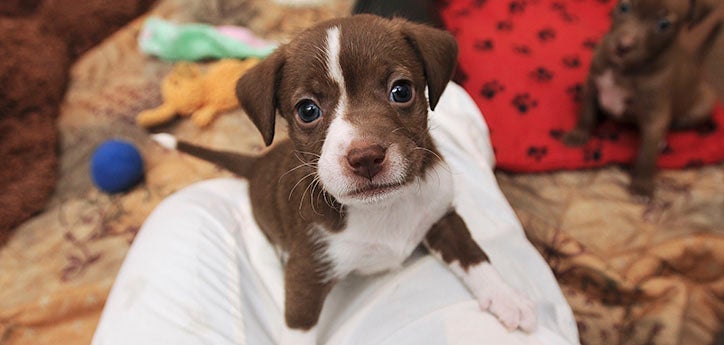
Caring for an Abused Rescue Dog: Nurturing a New Life
Share
Welcoming an abused rescue dog into your home is an act filled with compassion and responsibility. These animals often come with a history of trauma and require special attention to help them heal and integrate into their new environment. As a health-conscious pet owner, understanding how to properly care for an abused rescue dog can make a significant difference in their recovery and well-being.

Understanding the Challenges
When you embark on the journey of caring for an abused rescue dog, it's crucial to acknowledge the unique challenges that come with it. These dogs have often experienced neglect or mistreatment, leading to behavioral issues, anxiety, and trust problems. Patience and empathy will be your most valuable tools in this healing process.
Building Trust and Providing Comfort
The first step in helping an abused rescue dog is to establish trust. This process can take time, as the dog learns to associate you with safety and love. Gentle and consistent interactions, along with a calm and stable environment, will help them feel secure. Create a safe space where they can retreat and relax when they feel overwhelmed.
Consider creating a cozy corner with a comfortable bed and some calming toys. This space should be free from loud noises and disturbances. It's also important to maintain a predictable routine, as predictability can reduce anxiety and help the dog feel more at ease.
Implementing a Healthy Lifestyle
As a health-conscious owner, you likely understand the importance of a balanced diet and regular exercise. These principles are just as vital for your new furry friend. Providing a nutritious diet tailored to their specific needs will not only improve their physical health but also support their mental well-being.
Regular walks and playtime are essential in building a strong bond and promoting your dog's confidence. Engaging in activities like fetch or simple training exercises can be both fun and beneficial for their mental stimulation.
Addressing Behavioral Issues
Many abused dogs exhibit behavioral issues resulting from their traumatic past. It's essential to approach these issues with patience and understanding. Positive reinforcement techniques can be highly effective in encouraging desired behaviors. Reward your dog with treats and praise when they exhibit good behavior, reinforcing the idea that they are safe and loved.
For more insights on managing behavioral challenges, you can explore our article on adopting a fearful dog.
Seeking Professional Help
In some cases, professional assistance may be necessary. Working with a veterinarian who specializes in animal behavior or a certified dog trainer can provide valuable guidance. They can help address specific issues like aggression, separation anxiety, or fear-based behaviors.
Additionally, consulting resources like the ASPCA can offer further information and support for those caring for abused animals.
The Importance of Patience
Patience is not just a virtue; it's a necessity when nurturing an abused rescue dog. Progress may be slow, and setbacks can occur, but the rewards of seeing a once fearful and withdrawn dog begin to thrive are immeasurable. Celebrate small victories and remember that each step forward is a testament to your dedication and love.
To gain a deeper understanding of what to expect in this journey, our guide on the rescue dog patience timeline can offer valuable insights.

FAQs
1. How long does it take for an abused rescue dog to adjust?
The adjustment period can vary greatly depending on the dog's past experiences and current environment. Some dogs may begin to show signs of trust within a few weeks, while others may take several months. Consistency and patience are key.
2. What are some signs that my rescue dog is starting to trust me?
Signs of trust can include the dog seeking out your company, relaxed body language, wagging their tail, and showing interest in play or affection. Every dog expresses trust differently, so observe changes in behavior closely.
3. Should I adopt a second dog to help my rescue dog adjust?
While a second dog can provide companionship, it's important to ensure that your rescue dog is comfortable and confident in their current environment first. Introducing another dog too soon might cause additional stress. Consider your dog's temperament and consult with a professional if you're unsure.
By approaching caring for an abused rescue dog with empathy and dedication, you're not just offering them a second chance; you're opening the door to a life filled with love and happiness.
This article contains affiliate links. We may earn a commission at no extra cost to you.
